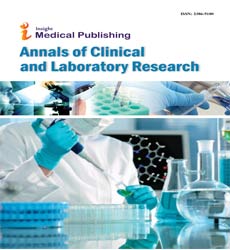Abstract
Research Advances on Occult Hepatitis B Virus Infection and its Roles in Digestive System Tumor Development: A New Focus in Cancer Prevention
Chronic HBV infection is well known as the major risk factor for Hepatocellular Carcinoma (HCC). During the course of chronic HBV infection, some patients may undergo Hepatitis B surface Antigen (HBsAg) sero-clearance and transfer to occult hepatitis B infection (OBI) status. Patients with OBI have negative serum HBsAg, but detectable HBV DNA in liver tissue with or without detectable serum HBV DNA. The underlying molecular mechanisms of OBI remain elusive. Several factors has been suggested, such as host immune factors mediated by epigenetic modification of HBV covalently closed circular DNA (cccDNA) in hepatocytes, and immune escape mutations and other mutations causing inhibited viral replication and surface antigen expression. OBI may maintain the pro-oncogenic properties as the overt infection. Recent studies have demonstrated that OBI patients have increased risk of developing HCC. By comparison between HCC cases arising from OBI patients and chronic HBV patients, HCC patients with OBI often has a milder cirrhotic liver. The mutation profiles were also found different. HBV infection has been linked with an increased risk of other malignancies such as Intra-hepatic cholangio carcinoma (ICC) and pancreatic cancer (PC), yet the implication of OBI in those cancers remains unclear. HBV vaccination has been proven to be the most efficient way to prevent HBV infections including OBI. However escape mutations and primary OBI are often reported among vaccinated populations. In the post vaccination era, the prevalence of OBI and its role in HCC needs to be further studied.
Author(s): Feifei Shang, Weiwei Cao, Lei Li, Huanling Shi, Jing Zhang, Bin Tan and Jiyong Liu
Abstract | PDF
Share this

Annals of Clinical and Laboratory Research peer review process verified at publons
Abstracted/Indexed in
- Google Scholar
- Genamics JournalSeek
- China National Knowledge Infrastructure (CNKI)
- CiteFactor
- Directory of Research Journal Indexing (DRJI)
- Publons
- Secret Search Engine Labs
- Euro Pub
Open Access Journals
- Aquaculture & Veterinary Science
- Chemistry & Chemical Sciences
- Clinical Sciences
- Engineering
- General Science
- Genetics & Molecular Biology
- Health Care & Nursing
- Immunology & Microbiology
- Materials Science
- Mathematics & Physics
- Medical Sciences
- Neurology & Psychiatry
- Oncology & Cancer Science
- Pharmaceutical Sciences


